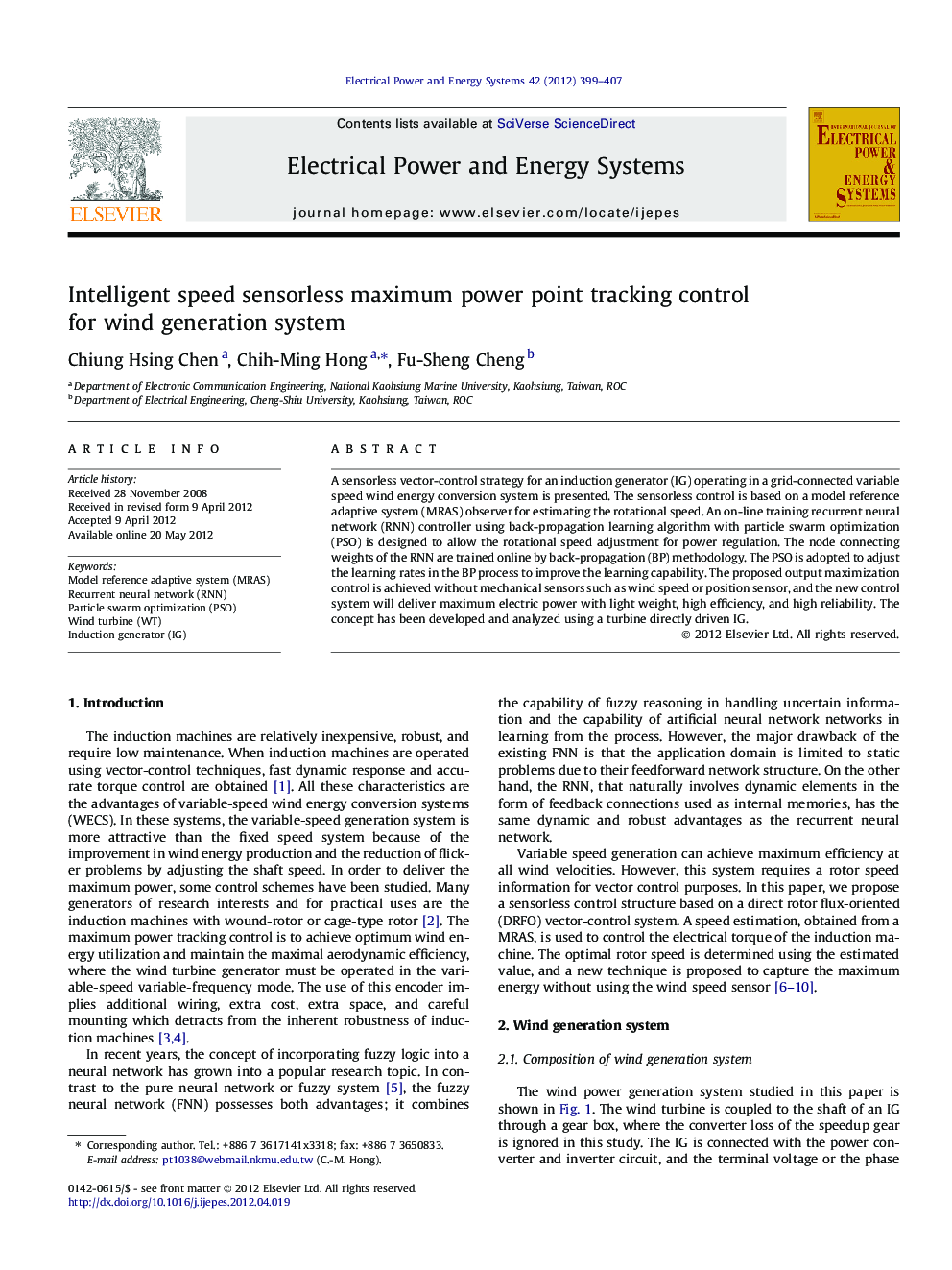| Article ID | Journal | Published Year | Pages | File Type |
|---|---|---|---|---|
| 399781 | International Journal of Electrical Power & Energy Systems | 2012 | 9 Pages |
A sensorless vector-control strategy for an induction generator (IG) operating in a grid-connected variable speed wind energy conversion system is presented. The sensorless control is based on a model reference adaptive system (MRAS) observer for estimating the rotational speed. An on-line training recurrent neural network (RNN) controller using back-propagation learning algorithm with particle swarm optimization (PSO) is designed to allow the rotational speed adjustment for power regulation. The node connecting weights of the RNN are trained online by back-propagation (BP) methodology. The PSO is adopted to adjust the learning rates in the BP process to improve the learning capability. The proposed output maximization control is achieved without mechanical sensors such as wind speed or position sensor, and the new control system will deliver maximum electric power with light weight, high efficiency, and high reliability. The concept has been developed and analyzed using a turbine directly driven IG.
► This technique can maintain the system stability and reach the desired performance. ► This method has a better performance with high accuracy and dynamic robustness. ► PSO is adopted in this study to improve the learning capability. ► This system will deliver maximum power with high efficiency and high reliability. ► The proposed output maximization control is achieved without mechanical sensor.
